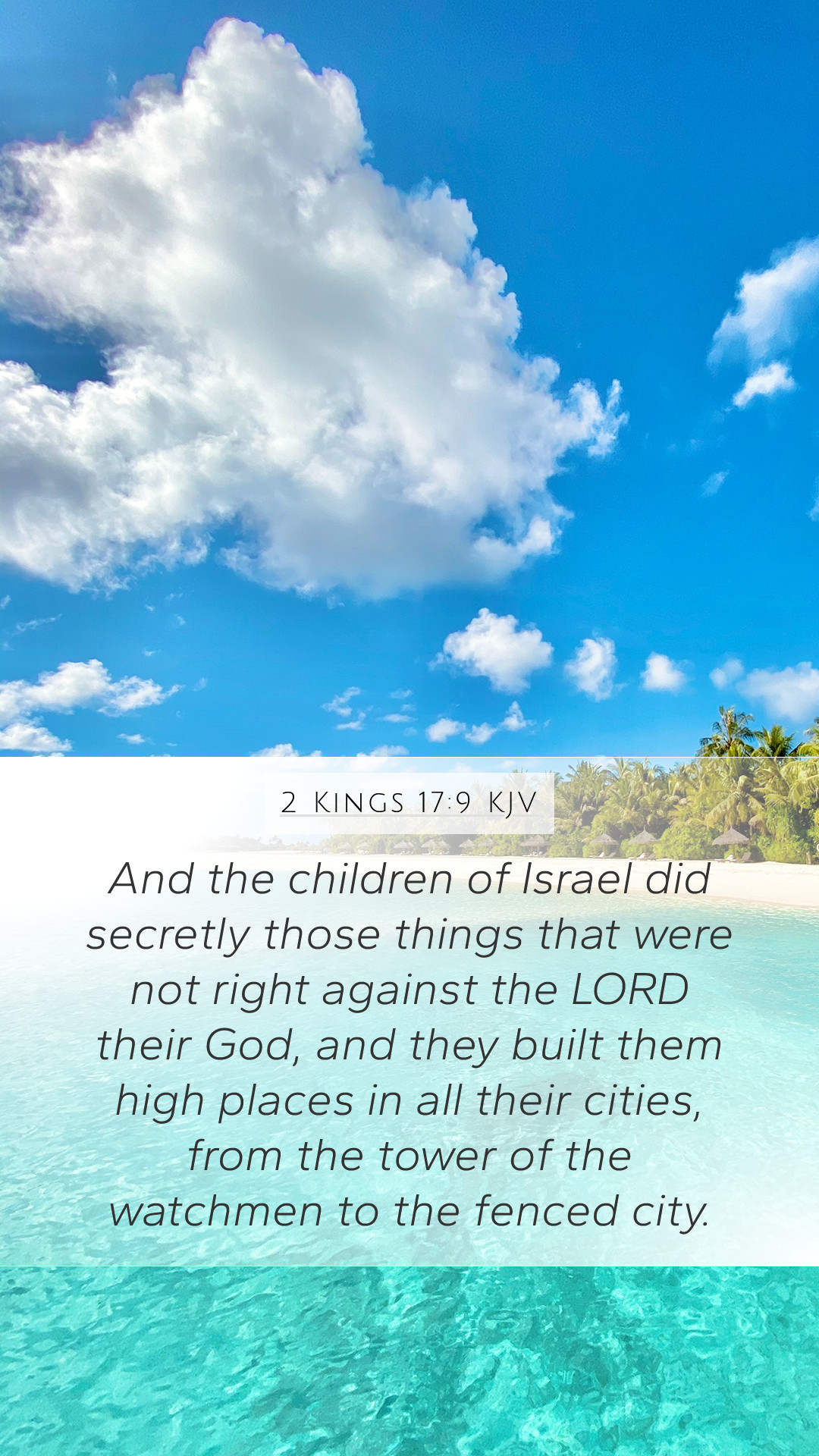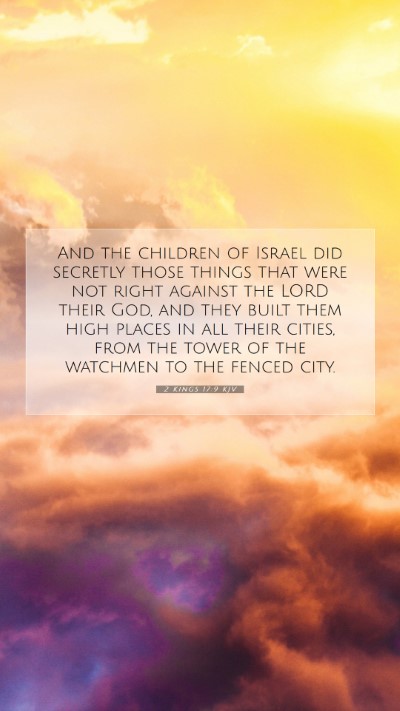Bible Verse: 2 Kings 17:9
Verse: "And the children of Israel did secretly those things that were not right against the LORD their God, and they built them high places in all their cities, from the tower of the watchmen to the fenced city."
Bible Verse Meanings and Interpretations
This verse provides significant insight into the spiritual state of Israel during a time of rebellion and idolatry. The verse highlights two main issues:
- Secret Sins: The phrase "did secretly" indicates the covert nature of their sins against God. The people were aware that their actions were contrary to God's commandments, yet they chose to proceed in secrecy. This suggests a deep spiritual depravity where the fear of accountability was overshadowed by a desire to indulge in idolatry.
- Idolatry and High Places: The construction of high places, which were places of worship for pagan gods, demonstrates a flagrant rejection of God’s law. These high places were likely seen as more accessible and appealing for worship than the central Temple in Jerusalem, indicating a departure from the prescribed way of worship.
Understanding This Scripture
In this context, the actions of the children of Israel reflect a significant turning away from their covenant with God. According to Matthew Henry, this verse illustrates the extent of Israel's disobedience toward God, who had continuously warned them against such practices. Albert Barnes adds that these high places symbolize not only idolatry but also a misplaced trust in their own understanding rather than divine guidance.
Historical Context
The historical backdrop of 2 Kings indicates that this period was marked by political instability and conflict, which often led the people to seek divine favor through idol worship. According to Adam Clarke, the high places were often associated with local nationalistic sentiments, reflecting a belief that these foreign gods could provide protection and blessings in a tumultuous environment.
Key Insights from Public Domain Commentaries
- Matthew Henry: Emphasizes that the Israelites acted in secret, showing how far they had fallen from a true relationship with God. Their hidden sins reveal a heart that no longer fears God.
- Albert Barnes: Points out that the high places were not only a violations of God’s command but also an attempt to merge worship of Yahweh with pagan practices.
- Adam Clarke: Posits that the act of building high places represents a dangerous trend of syncretism, where true worship is diluted by mixing it with idolatrous practices.
Application of This Verse
The implications of this verse for contemporary believers are profound. Understanding Scripture requires recognizing that the human heart has a tendency to seek out paths that appear easier or more appealing than the straightforward obedience to God. Many today can relate to the struggle with secret sins, suggesting our need for self-examination and repentance.
By learning about the sins of Israel, modern Christians are given a warning against the dangers of compromising their faith, emphasizing the importance of fidelity to God's Word. Engaging in Bible study groups or using Bible study tools can provide valuable insights into the significance of keeping faith untainted by surrounding cultural influences.
Related Bible Verses
- 1 Kings 12:31: Discusses Jeroboam's establishment of idol worship.
- Isaiah 1:23: Highlights the corruption and idolatry of God’s people.
- Jeremiah 7:31: Refers to the dangers of sacrificing children in the high places.
- Ezekiel 20:28: Addresses Israel's idolatrous actions in the wilderness.
- Hosea 4:13: Complains about the high places and the idolatry of Israel.


